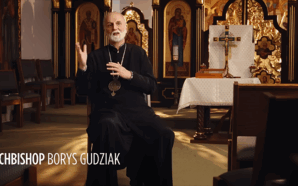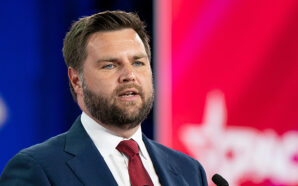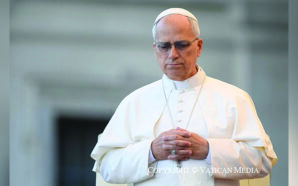Homily for the Fourth Sunday of Ordinary Time
Readings: Deuteronomy 18:15-20; 1 Corinthians 7:32-35; Mark 1:21-28
31 January 2021
Our state borders are opening. COVID vaccines are starting to roll out. We are commencing a new academic year. This liturgical year we focus on the gospel of Mark. Mark has no infancy narratives. There’s no talk of Mary pondering things in her heart or Joseph entertaining all manner of dreams. Mark throws us directly into the action, the good news about Jesus Christ, the Son of God. Jesus’ opening words are: ‘The time has come and the kingdom is close at hand. Repent, and believe the Good News.’ Having called his first four disciples, Jesus comes home to Capernaum teaching in the synagogue on the Sabbath. Unlike so many others who have taught in the synagogue, he teaches with authority, making a deep impression on his listeners.
Listen at https://soundcloud.com/frank-brennan-6/homily-31121
Mark tells us nothing of what Jesus actually taught in the synagogue at Capernaum. Mark is not so much concerned to impart the content of Jesus’ teaching, but rather to impress on the reader Jesus’ authority and appeal to fresh listeners. Nowhere in Mark’s gospel do we find key teachings of Jesus like the Beatitudes, the Lord’s prayer, the parable of the Good Samaritan, or the last judgment when the judge separates the sheep from the goats. Without hearing much content of Jesus’ teaching, the hearer of Mark’s gospel is moved by the authority of the teacher who makes a deep impression, evoking immediate acknowledgment by the spirit of evil in the assembly – the spirit of evil which is overcome immediately by the power of Jesus’ word.
When was the last time a teacher, preacher or leader made a deep impression on you? When was the last time you heard a civil or religious leader teaching with authority? Jesus impressed his listeners not because he mastered and repeated traditional teachings but because his was a teaching which was truly new ‘and with authority behind it’. His words were matched by action. He confronted evil. He drove out the unclean spirit which recognised him immediately as ‘the Holy One of God’.
As his followers, we are invited to confront evil, to propound new teaching, and to speak with authority. Whether it be in the public square or in the church pews, we have grown weary and suspicious of teaching by authorities. We are divided into our fixed camps. Some of us think the only authoritative teaching is that which repeats church mantras of past generations. Others of us think that the only authoritative teaching is that which disregards the past, engaging and being dictated by the spirit of the Age.
We saw the tensions being played out this past fortnight with the inauguration of Joe Biden, the first Catholic US president in 60 years. Some of the US bishops thought it was time to lay down the law, and on the very day of the inauguration. Others thought this was not just bad form, but very counter-productive.
No matter what our politics or nationality, we have been impressed by the word, ritual, tradition and community of the US presidential inauguration in the wake of the instability of recent times and the storming of the Capitol building. President Biden invited a handful of his political foes together with family, friends and allies to a Catholic mass on the morning of the inauguration. The presiding priest, Fr Kevin O’Brien SJ, the President of Santa Clara University, spoke about ‘the noble commission of public servants to care for the most vulnerable and liberate those who are oppressed.’ At the inauguration, the confident, passionate 22-year-old poet laureate Amanda Gorman reminded the crowd, ‘Scripture tells us to envision that everyone will sit under their own vine and fig tree and no one shall make them afraid.’
The invocation at the Inauguration was delivered by Fr Leo O’Donovan SJ, one-time president of Georgetown University and now Director of the US branch of our Jesuit Refugee Service. O’Donovan said, ‘There is a power in each and every one of us that lives by turning to every other one of us — a thrust of the Spirit to cherish and care and stand by others and above all those most in need. It is called love and its path is to give ever more of itself.’
Pope Francis sent a warm personal message to Biden with an assurance of prayers and good wishes that ‘God will grant you wisdom and strength in the exercise of your high office’. He prayed ‘that your decisions will be guided by a concern for building a society marked by authentic justice and freedom, together with unfailing respect for the rights and dignity of every person, especially the poor, the vulnerable and those who have no voice’.
The majority of the US bishops struck a very different tone. They backed Archbishop Gomez, the president of the US Conference of Catholic Bishops. Gomez decided not to send a brief personal message to Biden but rather to issue a lengthy statement addressed to all Americans. These bishops thought it was a critical moment for authoritative teaching. The bishops reminded Biden and his fellow citizens that ‘for the nation’s bishops, the continued injustice of abortion remains the “preeminent priority”’. Gomez paid tribute to Biden’s understanding ‘in a deep and personal way, the importance of religious faith and institutions’ but reminded all listeners that ‘the nation’s bishops are given the duty of proclaiming the Gospel in all its truth and power, in season and out of season, even when that teaching is inconvenient or when the Gospel’s truths run contrary to the directions of the wider society and culture.’
Was this really the time or place for the bishops to be carving out their public space for confrontation with the incoming administration? For some, this might appear as authoritative teaching. For others, myself included, this appeared a lost opportunity for pastoral solicitude and gracious blessing on a new president after a period of great national upheaval culminating in the storming of the Capitol on 6 January, in the midst of 400,000 COVID related deaths. Cardinal Cupich, one of Pope Francis’s captain’s picks in the US hierarchy, tweeted: ‘The U.S. Conference of Catholic Bishops issued an ill-considered statement on the day of President Biden’s inauguration. Aside from the fact that there is seemingly no precedent for doing so, the statement, critical of President Biden, came as a surprise to many bishops, who received it just hours before it was released.’
Whatever the bad timing and discordant tone, Archbishop Gomez was surely right when he said: ‘our duty to love and our moral principles lead us to prudential judgments and positions that do not align neatly with the political categories of left or right or the platforms of our two major political parties.’ I think he was wrong to use the inauguration of the first Catholic president in 60 years as the occasion to draw lines in the sand, purporting to expound an authoritative teaching on what a Catholic president can and cannot do. Pope Francis’s greeting and blessing, Fr O’Brien’s homily at the eucharist with the President, family, friends and political opponents, Amanda Gorman’s poem, and Fr O’Donovan’s invocation carried more the mark of authoritative teaching making a deep impression.
Here in Australia, we saw something of that same authoritative teaching when Miriam Rose Ungunmerr was made Senior Australian of the Year on Australia Day. Accepting the award, she said, ‘We learnt to speak your English fluently, walked on a one-way street to learn the white people’s way. Now is the time to come closer to understand us and to understand how we live and to listen to what needs are in our communities.’ I have been privileged to know Miriam for these last 40 years. She provided the design for my ordination vestment. Her community at Naiyu Nambiyu in the Northern Territory was first evangelised by Austrian Jesuits 135 years ago; now we are being evangelised by her message to us.
Teaching will be all the more authoritative when it is the fruit of deep interior listening to the other and when it is respectful of the other who thinks and acts differently. There will be times for speaking hard truths, but more often, there will be occasions for listening to the ambiguities and irresolvable complexities that confront our leaders and the poorest and most marginalised in our society, especially the Indigenous peoples who have been rendered strangers in their own land. Only once we have engaged in that deep attentive listening, what Miriam Rose Ungunmerr calls ‘dadirri’, can we then dare to attempt the authoritative teaching which comes from the type of prophet promised to Moses in today’s first reading from the Book of Deuteronomy: ‘I will raise up a prophet like yourself from their own brothers and sisters; I will put my words in the prophet’s mouth and the prophet shall tell them all I command.’ This will mean inevitable conflict at times, but we must retain the hope of reconciliation and unity.
In the months ahead, let’s hope and pray that the US bishops can get it right with Cardinal Cupich reminding his fellow bishops, ‘The internal institutional failures involved must be addressed, and I look forward to contributing to all efforts to that end, so that, inspired by the Gospel, we can build up the unity of the Church, and together take up the work of healing our nation in this moment of crisis.’ If Cupich is right, his fellow bishops need to heed the warning in Deuteronomy: ‘The prophet who presumes to say in my name a thing I have not commanded him to say, that prophet shall die.’
Let’s also pray for our Australian Church leaders as we prepare for this year’s Plenary Council. What a tonic it would be to hear some teaching which makes a deep impression on us ‘because, unlike the scribes’, they are teaching us ‘with authority’. Wouldn’t it be good for the first session of our Plenary Council to be opened by the Senior Australian of the Year?
Fr Frank Brennan SJ is the Rector of Newman College, Melbourne, the Distinguished Fellow of the P M Glynn Institute, Australian Catholic University, and the former CEO of Catholic Social Services Australia (CSSA).








